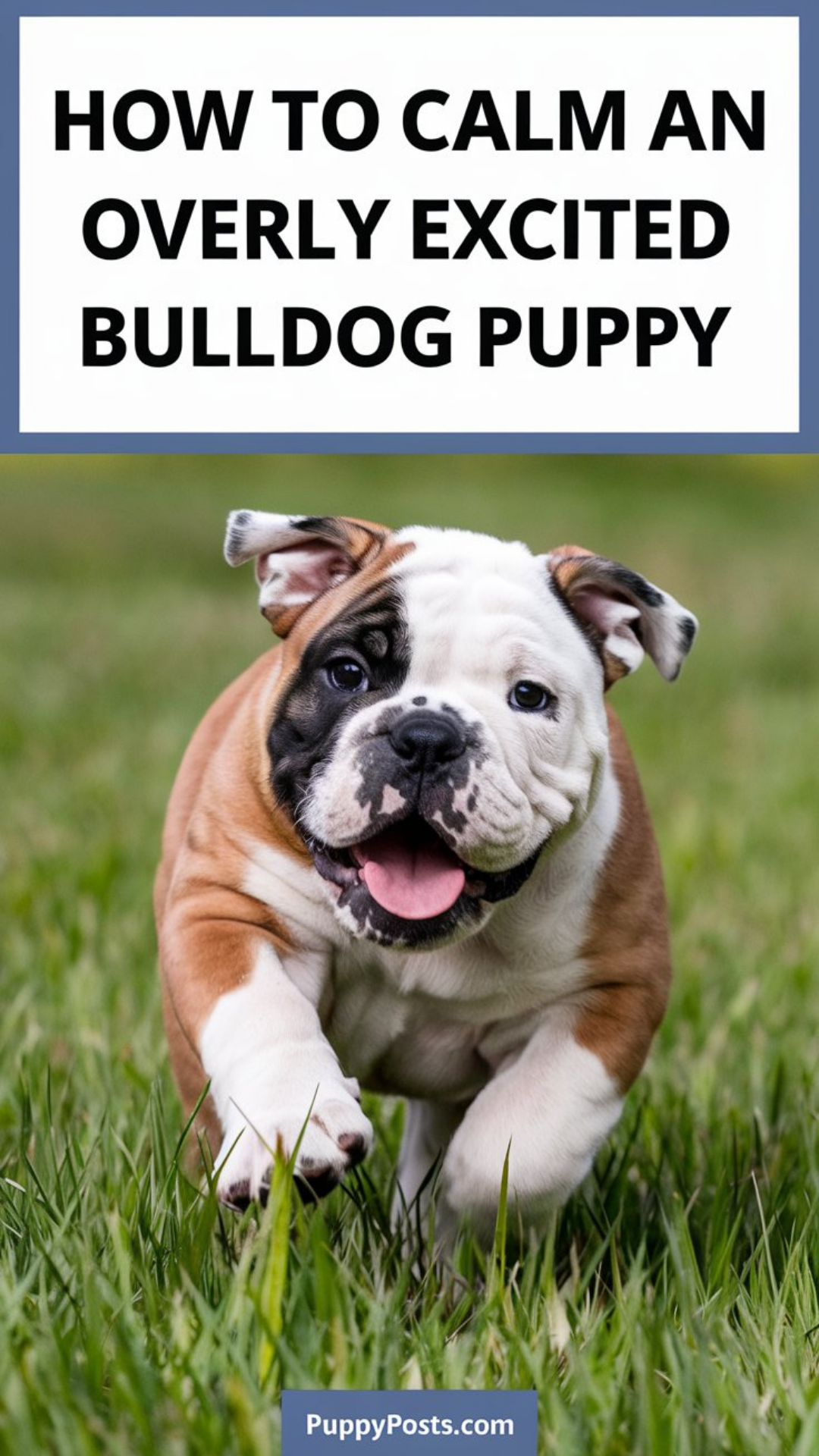How to calm an overly excited Bulldog puppy
I’m a veterinarian with over 10 years of experience, running a sanctuary for stray dogs and cats here in New Jersey. Bulldog puppies, with their stocky build and big personalities, bring a lot of joy—and a whole lot of energy. But when that puppy energy turns into nonstop excitement, it can quickly get out of hand. If you want to calm your overly excited Bulldog puppy, you need a clear plan with firm, calm leadership. No beating around the bush—here’s how you get it done.

1. Understand Bulldog Puppy Excitement Is Normal—but Manageable
Puppies are naturally high-energy, and Bulldogs are no exception. That excitement isn’t a bad thing, but left unchecked, it leads to jumping, nipping, and chaos.
Watch for signs like:
- Jumping up on people
- Biting or mouthing hard
- Barking or whining for attention
Recognizing these early helps you intervene before things escalate.
2. Set Firm Rules and Boundaries From the Start
Your Bulldog puppy needs to know what’s acceptable behavior and what’s off-limits.
Do this:
- Use simple, consistent commands like “No,” “Sit,” and “Calm”
- Interrupt excited behavior immediately with a calm “No” or “Ah-ah”
- Reward calm, polite behavior right away
Consistency is your best friend here—no mixed messages.
3. Tire That Puppy Out—But Do It Smart
An overly excited puppy is an under-exercised puppy. But Bulldogs have sensitive joints, so you’ve got to be careful.
Exercise tips:
- Short, frequent play sessions focused on gentle activities like fetch or tug
- Avoid high-impact exercise that can hurt growing bones
- Use mental stimulation like puzzle toys or simple obedience games
A tired puppy is a calmer puppy—period.
4. Use Calm, Steady Energy Yourself
Your Bulldog puppy feeds off your energy. If you’re wound up, they get wound up.
Keep your cool by:
- Speaking softly but firmly
- Avoiding shouting or frantic movements
- Being patient when your puppy tests limits
Your calm demeanor sets the tone for your pup’s behavior.
5. Teach Bite Inhibition Early and Often
Bulldog puppies love to mouth and bite, but they must learn how hard is too hard.
Training pointers:
- Let out a sharp “Ouch!” or “No” when your puppy bites too hard
- Stop play briefly to show biting ends the fun
- Praise gentle mouthing and licking
This teaches your pup to control their bite pressure.
6. Provide a Safe, Quiet Space for Down Time
Sometimes your Bulldog puppy needs a break from the excitement.
Set up:
- A cozy crate or quiet corner with their bed and toys
- Encourage your puppy to rest there after play or training
- Use this space for calm time to reset their energy
Teaching your pup to self-soothe pays off big time.
7. Stick to a Routine—Puppies Thrive on Predictability
A predictable schedule helps reduce anxiety and excitement spikes.
Include:
- Regular feeding, potty, play, and nap times
- Consistent training sessions
- Set quiet hours for rest
Routine gives your Bulldog puppy a sense of security.
8. Call in the Pros When You Need Backup
Sometimes puppy energy crosses the line into aggression or uncontrollable behavior.
Reach out if:
- Your Bulldog puppy’s excitement leads to biting that risks injury
- You can’t get consistent results with training
- You want personalized behavior help
A certified trainer or behaviorist will guide you through tough spots.
Final Word: Calming an Overly Excited Bulldog Puppy Demands Patience and Clear Leadership
Bulldog puppies come with big hearts and big energy. Here in New Jersey, we get straight to the point: if you want a calm, well-behaved dog, you’ve got to do the work. Set boundaries, stay calm, provide smart exercise, and teach your puppy self-control. It won’t happen overnight, but with steady leadership and patience, you’ll have a Bulldog who knows when it’s time to play—and when it’s time to settle down.
No shortcuts. No excuses. Just good, firm leadership.







